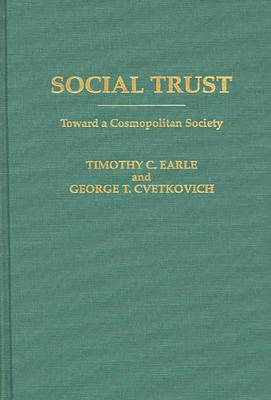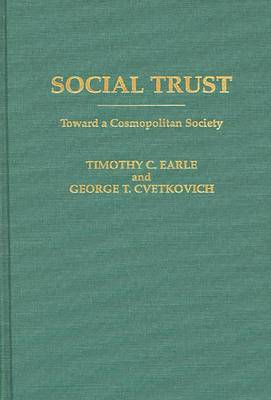
- Afhalen na 1 uur in een winkel met voorraad
- Gratis thuislevering in België vanaf € 30
- Ruim aanbod met 7 miljoen producten
- Afhalen na 1 uur in een winkel met voorraad
- Gratis thuislevering in België vanaf € 30
- Ruim aanbod met 7 miljoen producten
Zoeken
€ 161,45
+ 322 punten
Omschrijving
This work examines the basic social-psychological problems that generate the need for social trust and other acculturation strategies. Social trust is examined within the context of competing social problem-solving tools. The authors analyze the problem of how social trust can be encouraged within a cultural context that favors other socialization strategies, particularly distrust. They look at the relation between social trust and risk communication, specifically how social trust might be used to transform public participation; from an ineffective formalist show into a creative, community-building, problem-solving process. The work distinguishes between two forms of social trust pertinent to our world today: pluralistic, which occurs within groups and is based on existing values, and cosmopolitan, which is an across-group phenomenon and is based on emerging values. Earle and Cvetkovich's study is the story of gradual movement from pluralistic to cosmopolitan social trust.
Specificaties
Betrokkenen
- Auteur(s):
- Uitgeverij:
Inhoud
- Aantal bladzijden:
- 240
- Taal:
- Engels
Eigenschappen
- Productcode (EAN):
- 9780275948450
- Verschijningsdatum:
- 24/07/1995
- Uitvoering:
- Hardcover
- Formaat:
- Genaaid
- Afmetingen:
- 156 mm x 234 mm
- Gewicht:
- 508 g

Alleen bij Standaard Boekhandel
+ 322 punten op je klantenkaart van Standaard Boekhandel
Beoordelingen
We publiceren alleen reviews die voldoen aan de voorwaarden voor reviews. Bekijk onze voorwaarden voor reviews.








